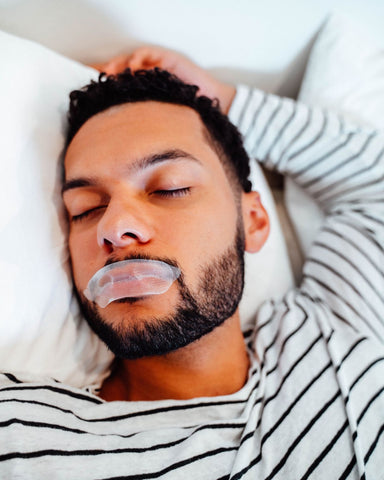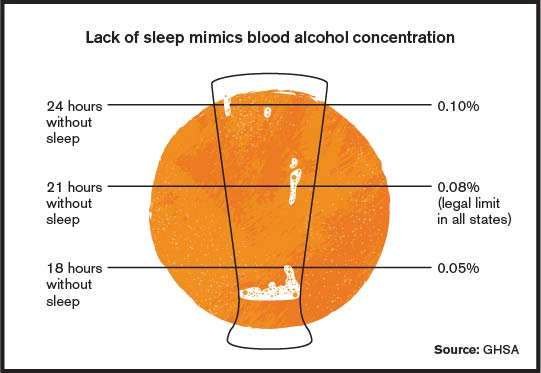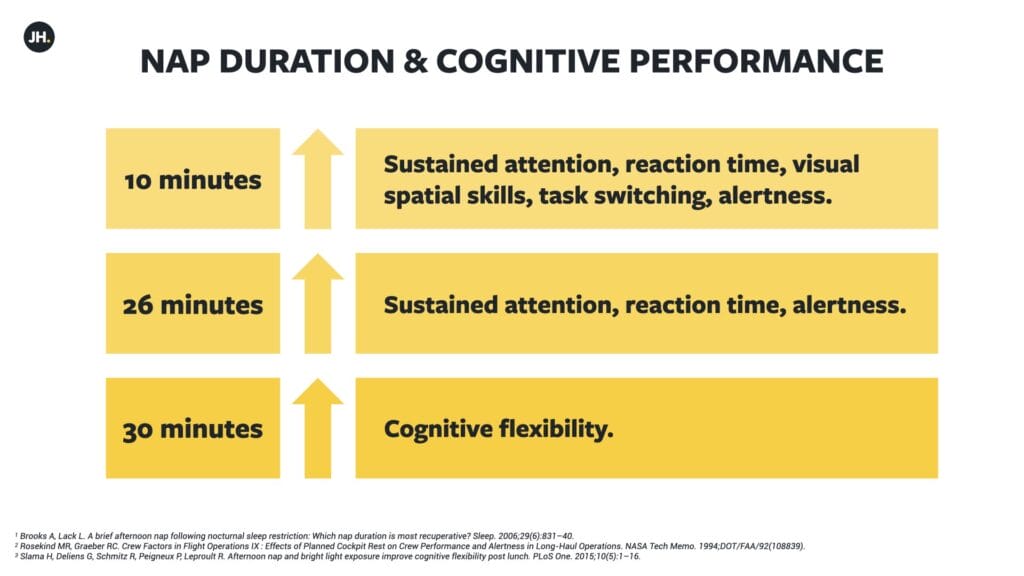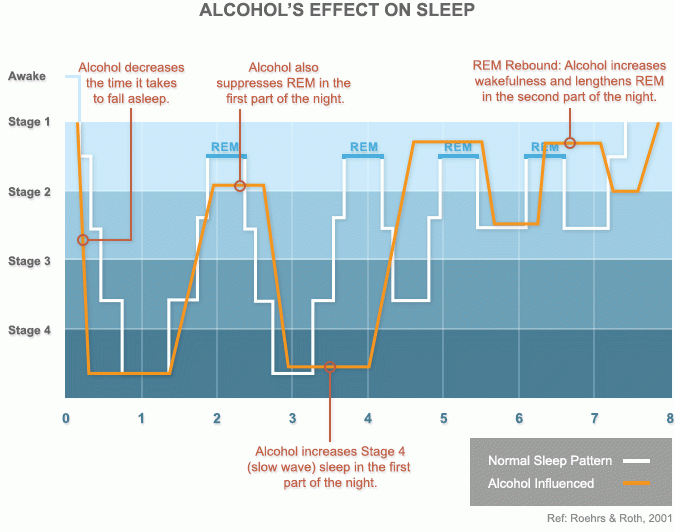The demands and obligations of being a student quickly lead to a full plate.
With a seemingly endless list of “to-do’s,” sleep often falls by the wayside.
In fact, a University of Alabama study revealed that 60 percent of college students are chronically sleep-deprived.
When we’re short on sleep, learning, concentration, and memory are all impaired. In turn, academic performance declines.
That’s why we’ve rounded up seven sleep hacks to help create the best night routine for students. But first – why are students running so short on sleep in the first place?
Why Are Students So Sleep Deprived?
There’s a reason that so many students claim to run on coffee and all-nighters.
Academic obligations turn on the pressure for achievement, raising stress levels. As stress levels and the pressure to succeed rise, a lack of sleep follows.
Stress causes our nervous system to pump out adrenaline and cortisol. As these hormones rise within the body, our heart rate follows.
These hormones flood the system, activate the sympathetic nervous system, and boost circulation in order to prepare the body to fight or flee from dangerous situations.
Evolutionarily, this response system has been vital for human survival. In modern times, however, our stressors aren’t exactly life-threatening. That said, they often feel that way.
Social, work, and academic challenges all elevate our stress response, motivating us to tackle the next task.
Nevertheless, there’s a huge difference between occasional, motivating stress and chronic stress.
Research shows that 45 percent of American college students experience “more than average stress,” while 12.7 percent are under “tremendous stress.”
Over time, chronic stress has a detrimental effect on both the body and mind, leading to sleep deprivation due to anxiety and insomnia.

Nonetheless, getting adequate sleep is one of the best things we can do to bring chronic stress levels down, finally breaking the cycle.
That means skipping all-nighters that have become so normalized in the academic world.
#1: Avoid All-Nighters
Think twice before you stay up all night for a study cram session again. Research suggests that all-nighters don’t offer the best night routine for students.
Skipping a night of sleep may not sound like a big deal, but all-nighters harm our ability to think, manage our emotions, regulate our mood, and even physically function.
All-nighters may boost the risk for metabolic diseases like obesity and diabetes.
Moreover, skipping a night of sleep immediately slows down our reaction time, impairs critical thinking, and disrupts the ability to follow instructions and complete tasks efficiently.
People who skip much-needed sleep are even more likely to construct false memories due to the way that sleep deprivation harms the memory centers of the brain.
If that wasn’t already frightening enough, multiple studies have concluded that pulling an all-nighter leads to impairment that is comparable to (or worse than) being intoxicated.
Resist the temptation to stay up all night long, no matter how full your plate is. Schedule regular naps to boost your energy rather than pushing yourself past your limit.
#2: Become a Nap-A-Holic
When you have a ton of tasks to tackle, a nap is likely the last thing on your mind. However, a quick power nap is a surefire way to achieve the energy boost you need.
Just be sure not to nap for too long. According to The Sleep Foundation, the optimal nap length for adults is between 20 and 30 minutes.
This brief length allows for enough light sleep to boost energy and alertness without entering deep sleep, as waking from deep sleep can actually worsen grogginess.
The Navy SEAL sleep technique can help you achieve a short, restorative nap to boost performance and learning. The best part? It’s an approved, tried-and-true military sleep system used by real Navy SEALs.
The method involves an 8 to 12-minute nap kicked off by laying on the floor with your feet up at a 90-degree angle on your bed or a chair.
Once your alarm goes off, you should feel renewed and ready to tackle whatever is next on your to-do list.
If you drink caffeine, save it for the morning. A hot cup of Joe isn’t included in the best night routine for students.
#3: Skip the Afternoon Java
It seems like students run on coffee these days. In fact, three-quarters of all adults do, student or not.
And if you aren’t reaching for a coffee, chances are that you reach for a different type of caffeinated beverage, like tea, an energy drink, or soda.
While caffeine does offer some potential benefits, it can also cause more harm than good when it comes to sleep.
The alert feeling that caffeine offers is the reason most people consume it, but many aren’t aware of how or why caffeine causes us to feel so energetic.
Once consumed, our bodies absorb and distribute caffeine very quickly. As it enters the body and brain, caffeine blocks adenosine receptors that help to regulate our sleep/wake cycle.
Adenosine levels usually build throughout the day, eventually leading to feelings of sleepiness at night. When adenosine receptors become blocked due to caffeine consumption, insomnia follows.
To prevent sleep disruptions caused by caffeine, research suggests that you should refrain from consuming coffee, tea, and other caffeinated beverages at least six hours before bedtime.
As you fight the urge to drink caffeinated beverages, fend off the temptation to study or work on homework from your bed.
#4: Stop Working From Bed
Working on homework or studying from your bed is an easy habit to fall into, especially if you are a student living in a dorm room.
That said, working from your bed isn’t included as part of the best night routine for students.

Regardless of your living situation, try to reserve your bed for sleeping only. Opt to do work from a desk or alternative area to keep your working and sleeping areas separate.
When you work from your bed, your brain will begin to associate it with productivity and alertness.
However, if you reserve your bed for sleep, your mind will register the act of getting into bed with relaxation, helping you drift off with less stress.
Before you hop into bed, lower your body temperature for easier, deeper sleep.
#5: Lower Your Core Body Temperature
If your bedroom feels stuffy or hot, you may have a harder time falling and staying asleep.
Studies have concluded that the ideal temperature for quality sleep is between 60 and 67 degrees Fahrenheit, as a cooler temperature leads to deeper Non-Rapid Eye Movement (NREM) sleep.
Aside from adjusting your thermostat or turning on a fan, try a warm shower or bath before bed.
Research shows that taking a warm shower or bath around 90 minutes before bed is proven to help you fall asleep ten minutes faster than usual, on average.
While it may sound counter-intuitive, a warm shower causes the body to rapidly cool once you get out, lowering your core body temperature.
Wearing socks in bed leads to the same phenomenon, as socks cause increased blood flow to the feet. This leads to heat loss through the skin, which in turn lowers body temperature.

While a warm shower and socks are part of the best night routine for students, alcohol isn’t. If you’re reliant on an evening nightcap to feel tired, opt to skip it next time.
#6: Keep an Eye on Alcohol Consumption
Students in the United States report heavy drinking and sleep disturbances as commonly faced problems while pursuing higher education.
But what if the two are linked? As it turns out, they are.
Roughly 80 percent of college students drink. Of those who do, half admit to binge drinking regularly.
Over time, drinking alcohol impairs learning, health, and our ability to get a good night’s rest.
While drinking can promote the onset of sleep, it also leads to lighter, more fragmented sleep overall.
As alcohol is metabolized throughout the night, REM sleep is disrupted, causing you to wake up more often.
As a result, you’ll feel groggy and fatigued throughout the next day (even if you sleep for a full seven to eight hours).
Cut back on alcohol consumption and avoid drinking within a few hours before bed to keep your sleep cycles in sync.
Then, soak up the sun to get the day started when you wake up.
#7: Seek Morning Sun Exposure
In case it hasn’t dawned on you yet (pun intended), we’re wired to rise with the sun and relax with the moon.
In fact, the absence of sunlight is what kick starts melatonin production which helps us fall asleep. In contrast, morning sunlight signals to our bodies and brains that it’s time to feel alert.
According to Stanford neuroscientist Andrew Huberman, sunlight and darkness are our most important biological indicators.
Seeing morning sunshine within the first few hours of waking helps to regulate our internal clock, preparing us to feel tired once bedtime rolls around.

Expose yourself to sunlight in an unfiltered manner to reap all of the benefits. That means no windows, sunglasses, or hats.
As your eyes take in the morning light regularly, your sleep cycles are put back on track.
Just as your eyes need to see morning light properly for better sleep, our bodies need to take in air properly.
Bonus Hack: Put Mouth Breathing to Bed
Shift your attention to your breathing patterns right now. Are you breathing in and out of your mouth or your nose?
If you answered your mouth, you’re not oxygenating your body to its best ability. As a result, your focus, concentration, and memory may be impaired.
Furthermore, mouth breathing during sleep leads to snoring and disrupted sleep quality.
Opposed to mouth breathing, nasal breathing not only boosts focus and concentration - it warms, filters, and humidifies the air for peak oxygenation.
Moreover, nasal breathing produces nitric oxide, a vasodilator known to reduce stress, boost immunity, and reduce inflammation.
@somnifix The nose is our first line of defense against pollutants, viruses, and bacteria! #JamesNestor author of “Breath” explains the benefits of #nasalbreathing over #mouthbreathing 👃✨ #airwayhealth #sleepquality #wellness #learnontiktok ♬ Pretty Girls Walk - Big Boss Vette
Switching from mouth breathing to nasal breathing during waking hours requires you to pay attention to your breath. But what about during sleep?
Mouth tape is a secret weapon to ensure nasal breathing during sleep for better sleep quality and snoring prevention.
Taping your mouth before bed ensures that your lips stay sealed overnight, preventing mouth breathing and snoring altogether.
Your sleep quality will thank you as you nasal breathe all night long and, in turn, you’ll feel more refreshed and ready to take on whatever the next morning throws your way.
Pause! Before you grab any old tape, be warned that most tapes are created with adhesives full of chemicals and irritants known to cause rashes.
SomniFix, however, is hypoallergenic, latex-free, and gluten-free.

What’s more, our strips include a patented breathing vent that offers an emergency mouth breathing option overnight as you get used to taping your mouth during sleep.
Put mouth breathing and poor sleep to bed for good with the help of SomniFix tonight!








